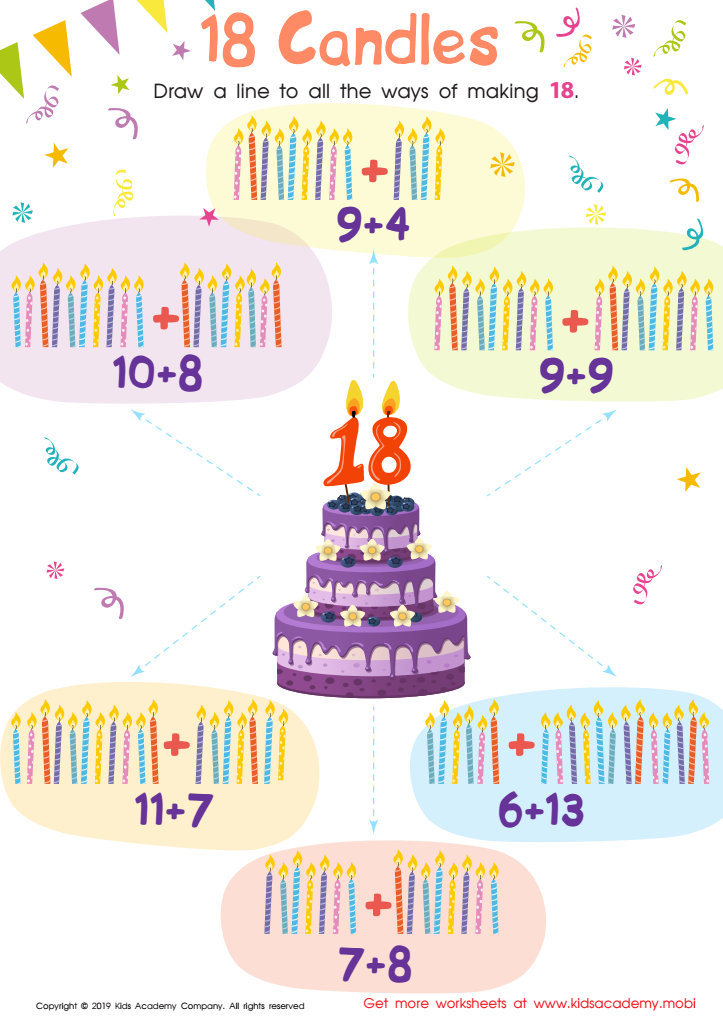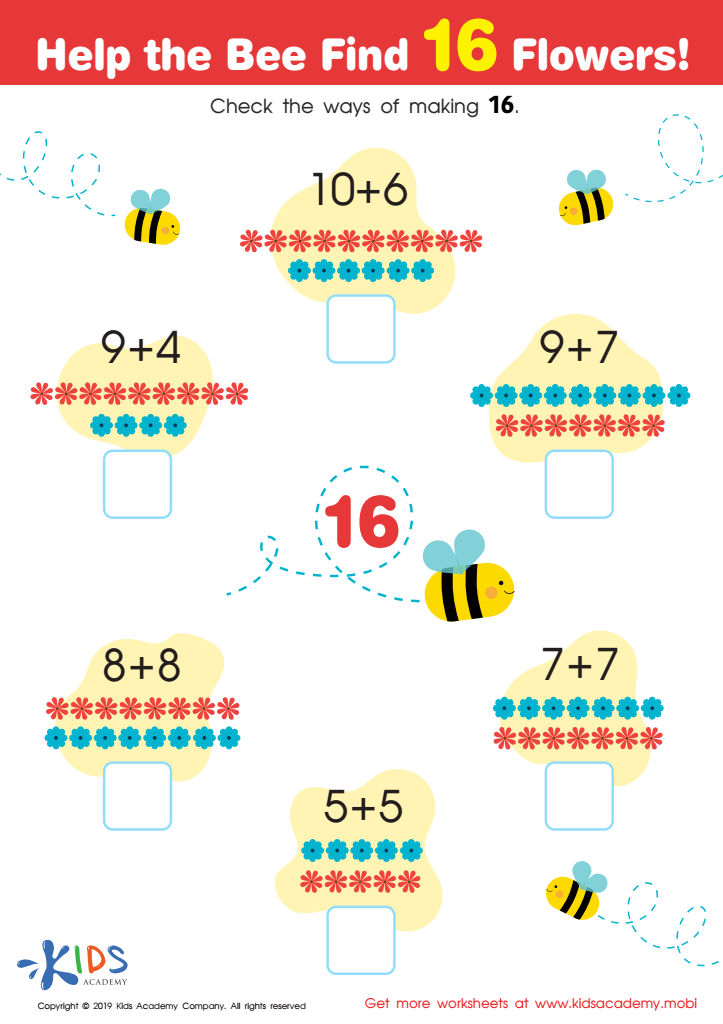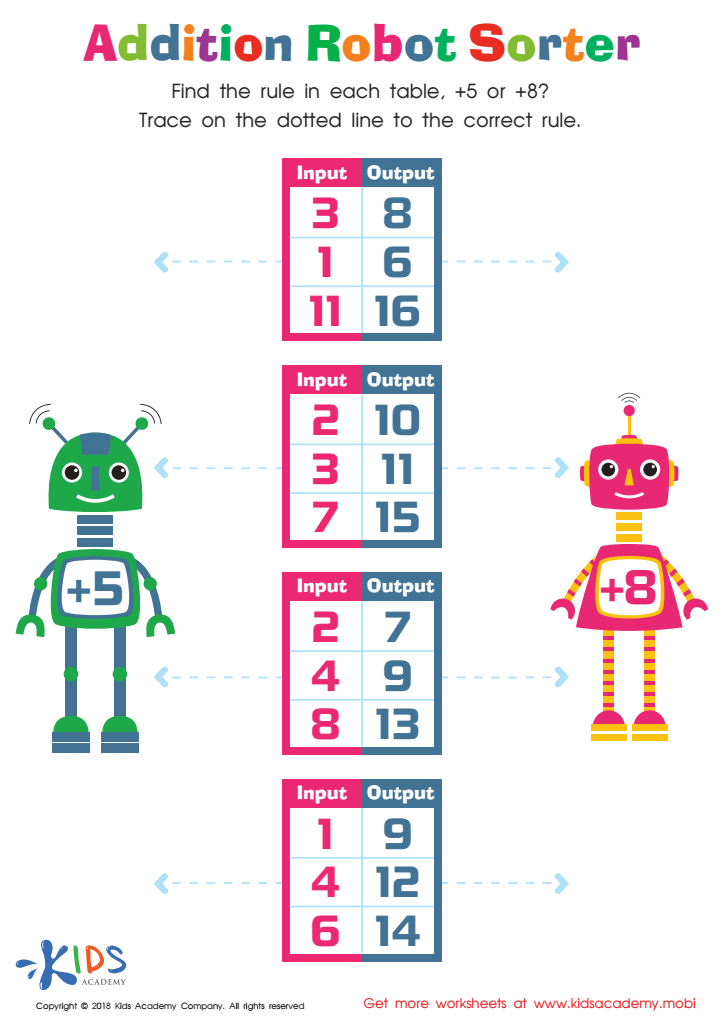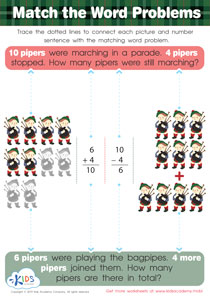Fine Motor Skills Normal Addition Worksheets for Ages 6-8
3 filtered results
-
From - To
Enhance your child's fine motor skills while they master basic addition with our specially designed worksheets for ages 6-8. These engaging and fun resources help young learners fine-tune their hand-eye coordination, dexterity, and pencil grip as they practice addition in a creative way. Each worksheet combines colorful illustrations and age-appropriate math problems, ensuring your child remains motivated and excited about learning. Our Fine Motor Skills Normal Addition Worksheets encourage children to trace numbers, complete patterns, and solve math problems—all designed to strengthen their writing abilities alongside essential numerical skills. Start fostering confidence and coordination in math with our interactive worksheets today!


18 Candles Worksheet


Help the Bee Find 16 Flowers Worksheet


Addition Robot Sorter Worksheet
Fine motor skills are crucial for children aged 6-8 as they directly impact their ability to perform everyday tasks and academic activities. During this developmental stage, children transition from basic skills to more complex tasks, such as writing, drawing, and manipulating small objects. Normal progression in fine motor skills not only enhances a child’s precision and control over their hand movements but also contributes to their overall cognitive development.
Parents and teachers should be particularly attentive to this aspect of growth because gaining competence in fine motor tasks can boost a child’s confidence, encouraging them to engage more fully in classroom activities and creative projects. Moreover, children with well-developed fine motor skills are better equipped to tackle written assignments, which improves their literacy and numeracy abilities. On the other hand, delays in fine motor development can lead to frustrations or difficulties in learning, possibly causing a child to disengage from schoolwork. Supporting fine motor skill development through activities like sewing, puzzles, or playdough not only makes learning fun but is an essential investment in a child's future academic success. By emphasizing the importance of this skill area, adults can help nurture well-rounded, capable learners.
 Assign to My Students
Assign to My Students






.jpg)














